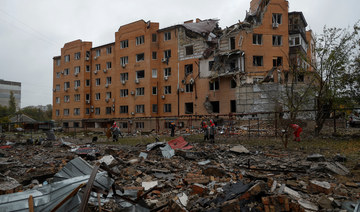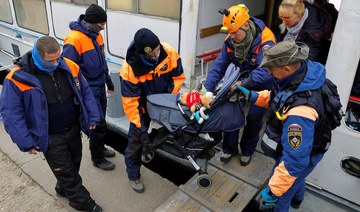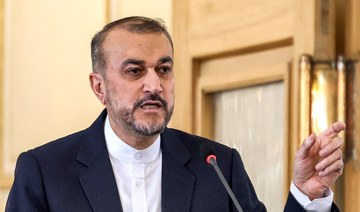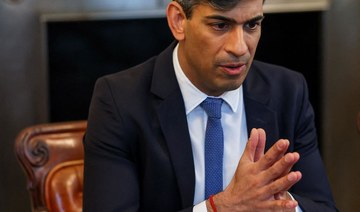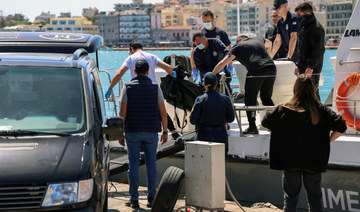KHERSON, Ukraine: Ukrainian troops at the front line said on Wednesday they were expecting a bitter fight for the southern Kherson region, which Russia now appeared to be reinforcing after days in which it seemed possible that Moscow might withdraw.
In Russia, the military staged a high-profile rehearsal for nuclear war, with state television broadcasts dominated by footage of submarines, strategic bombers and missile forces practicing launches in retaliation for an atomic attack.
Moscow has conducted a diplomatic campaign this week to promote an accusation that Kyiv is preparing to release nuclear material with a so-called “dirty bomb,” an allegation the West calls baseless and a potential pretext for Russian escalation.
The looming battle for Kherson at the mouth of the Dnipro River is expected to be one of the most consequential of the war, determining whether Kyiv can loosen Moscow’s grip on southern Ukraine.
While much of the front line remains off limits to journalists, at one section of the front north of the Russian-occupied pocket on the west bank of the Dnipro, Ukrainian soldiers said Russian shelling was stepping up again after having tailed off in recent weeks.
Radio intercepts indicated freshly mobilized recruits had been sent to the front and Russian forces were firmly dug in.
“They have good defensive lines with deep trenches, and they are sitting deep underground,” said Vitalii, a Ukrainian soldier squatting in a weed-choked irrigation canal, concealed from any prowling enemy drones by overhanging trees.
Both Russia and NATO are holding long-standing annual drills of their nuclear forces this week. But Russia has given the exercises a much higher profile than usual, timing it to coincide with its dirty bomb accusations against Ukraine.
Kyiv says Moscow has been brandishing the prospect of nuclear war to intimidate Western countries into withdrawing their support for Ukraine. Moscow said President Vladimir Putin had personally overseen the nuclear drills remotely.
The Pentagon said a day earlier that Russia had notified it of its intention to carry out the exercises, which reduced the risk of miscalculation at a time of “reckless” Russian nuclear rhetoric.
’THEY ARE FIGHTING WELL’
Ukrainian forces advanced along the Dnipro River in a dramatic push in the south at the start of this month, but progress appears to have slowed. Russia has been evacuating civilians from the pocket of territory it holds on the west bank this week but says it has no plans to pull out its troops.
Oleksii Reznikov, Ukraine’s defense minister, said wet weather and rough terrain were making Kyiv’s counter-offensive in Kherson harder than it was in the northeast, where it pushed Russia back in September.
At the front, intermittent artillery fire echoed from both sides, with towers of smoke rising in the distance.
A Ukrainian helicopter gunship swept low over the fields, loosed rockets at the Russian positions and wheeled around spitting flares to distract any heat-seeking anti-aircraft rockets fired at it.
“In the press they say the Russians are afraid and will withdraw their troops, but that is not true,” said a unit commander at the front, who asked to be quoted by his nickname, Nikifor. “They are fighting well and hitting our troops.
“In this area, they are very active. They shell every day and are digging trenches and preparing for defense,” said Nikifor, whose location in Mykolaiv province could not be identified under Ukrainian military regulations.
The unit holds a network of well fortified trenches dug into tree lines opposite the Russian fortifications, and recent rains have turned the dirt tracks that access them to mud, especially where tank treads have churned them up.
Since Russia began losing ground in a counter-offensive in September, Putin has taken a series of steps to escalate the conflict, calling up hundreds of thousands of Russian reservists, proclaiming the annexation of occupied land and repeatedly threatening to use nuclear weapons to defend Russia.
This month, Russia launched a new campaign of strikes using missiles and Iranian-made drones against Ukraine’s energy infrastructure, also hitting parks and homes across the country.
The remains of a US citizen killed in Ukraine were turned over to Ukrainian authorities as part of a prisoner swap.
Andriy Yermak, head of Ukraine’s president’s office, identified the US citizen as Joshua Jones, a US Army veteran. The US State Department, which did not identify the person, said the remains would soon be returned to the person’s family.
Ukrainians expect tough fight for Kherson; Russia stages nuclear war games
https://arab.news/wpsjy
Ukrainians expect tough fight for Kherson; Russia stages nuclear war games
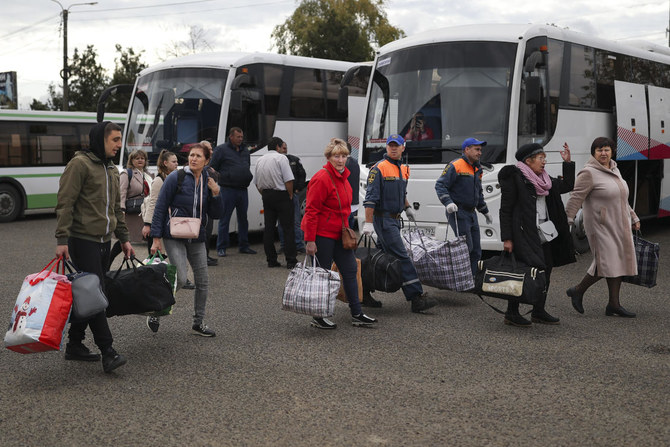
- In Russia, the military staged a high-profile rehearsal for nuclear war
- The looming battle for Kherson at the mouth of the Dnipro River is expected to be one of the most consequential of the war
Iraqi father launches legal action against BP over son’s cancer death
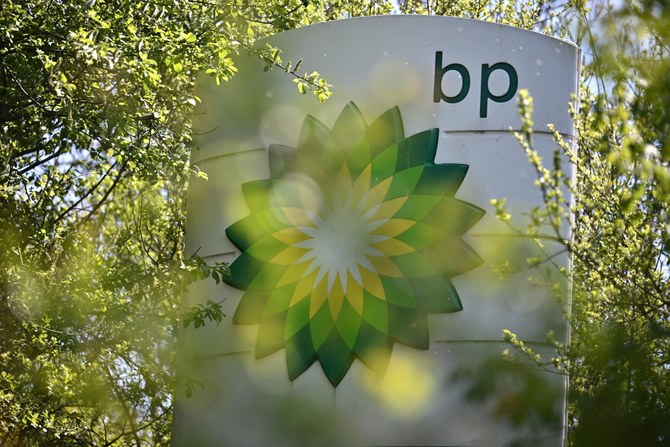
- Hussein Julood says practice of flaring in Rumaila oil field caused Ali’s leukemia
- ‘I am also representing those poor people living here and suffering from pollution’
London: An Iraqi father has launched legal action against British oil giant BP after his son died of leukemia allegedly as a result of flaring, the BBC reported on Tuesday.
Ali died aged 21 last year because a local BP-run oil field had practiced flaring, the burning off of gas, his father Hussein Julood has alleged.
The village where Ali grew up, which lies within the boundaries of the oil field, contained high levels of carcinogenic pollutants that are linked to flaring, a BBC investigation in 2022 showed.
Julood’s case is believed to be the first instance of individual legal action against an oil firm over the practice of flaring.
In a claim letter, he argues that “toxic emissions from the Rumaila oil field” led to Ali’s leukemia and subsequent death, and that as the lead contractor of the site, BP holds partial responsibility.
Julood is demanding compensation for his son’s lengthy medical treatment, which included overseas trips, as well as for loss of earnings, funeral costs and “moral losses.”
He told the BBC: “I am just hoping for those who hear my voice, from BP, to consider my situation. I am not representing myself alone, I am also representing those poor people living here and suffering from pollution.”
Rumaila oil field has the highest known levels of flaring in the world, according to BBC analysis of World Bank figures.
Aged only 15, Ali was diagnosed with acute lymphomatic leukemia and endured two years of treatment, including chemotherapy, a bone marrow transplant and radiotherapy.
Despite being a keen footballer and student in school, he was unable to return to classes after his treatment.
But after being declared in remission in 2021, Ali opened a local phone business and “was excited about the future.”
In 2022 he was found to be in relapse, and his father urgently tried to raise funds for experimental treatment in India, but Ali died on April 21 last year before he could make the journey.
Julood said one of the most important goals of his case is preventing regular flaring from taking place in Rumaila “so that more families did not suffer.”
He told the BBC that last year “was a very sad year for the family,” adding: “For me, his mother, and his brothers, too. Ali was an unforgettable person, he was my backbone, I depended on him in my work, my life and in everything in the house. All the days we live are sad.”
A week after Ali died, Julood addressed the BP board at the firm’s annual general meeting, demanding an end to gas flaring in Rumaila.
But in the year since, populated areas within the oil field have “seen flaring and black smoke” almost daily, he said, adding that up to four or five deaths have occurred locally due to cancer since Ali’s death.
Wessen Jazrawi, partner at Hausfeld & Co., the law firm representing Julood, said: “This is an important example of environmental litigation seeking compensation for harmful emissions from a carbon major.
“Such companies have generally been able to carry out harmful environmental practices with impunity, particularly where these occur in the Global South.”
Modi accused of hate speech for calling Muslims ‘infiltrators’ at a rally days into India’s election
Modi accused of hate speech for calling Muslims ‘infiltrators’ at a rally days into India’s election

- Congress spokesperson says party has sought action from India’s election commission against Modi
- India’s election code of conduct forbids candidates to “appeal to caste or communal feelings” for votes
NEW DELHI: India’s main opposition party accused Prime Minister Narendra Modi of hate speech after he called Muslims “infiltrators” and used some of his most incendiary rhetoric to date about the minority faith in a campaign rally days after the country began its weekslong general election.
At the rally on Sunday in the western state of Rajasthan, Modi said that when the Congress party was in government, “they said Muslims have the first right over the country’s resources.” If it returns to power, the party “will gather all your wealth and distribute it among those who have more children,” he said as the crowd applauded.
“They will distribute it among infiltrators,” he continued, saying, “Do you think your hard-earned money should be given to infiltrators?”
Abhishek Manu Singhvi, a spokesperson for Congress, called the prime minister’s remarks “deeply, deeply objectionable” and said the party on Monday had sought action from the Election Commission of India, which oversees the six-week voting period. The first votes were cast Friday.
The remarks sparked fierce criticism for peddling anti-Muslim tropes, and for breaking election rules which bar candidates from engaging in any activity that aggravates religious tensions. The Election Commission of India’s model code of conduct forbids candidates to “appeal to caste or communal feelings” to secure votes.
Asaduddin Owaidi, a Muslim lawmaker and president of the All India Majlis-e-Ittehad-ul-Muslimeen party, said on Sunday: “Modi today called Muslims infiltrators and people with many children. Since 2002 till this day, the only Modi guarantee has been to abuse Muslims and get votes.”
Critics of Modi — an avowed Hindu nationalist — say India’s tradition of diversity and secularism has come under attack since his party won power in 2014 and returned for a second term in 2019. They accuse Modi’s BJP of fostering religious intolerance and sometimes even violence. The party denies the accusation and say their policies benefit all Indians.
But rights groups say that attacks against minorities has become more brazen under Modi. Scores of Muslims have been lynched by Hindu mobs over allegations of eating beef or smuggling cows, an animal considered holy to Hindus. Muslim businesses have been boycotted, their homes and businesses have been bulldozed and places of worship set on fire. Some open calls have been made for their genocide.
Modi’s remarks on Sunday were based on a 2006 statement by then-Prime Minister Manmohan Singh of the Congress party. Singh said that India’s lower-castes, tribes, women and, “in particular the Muslim minority” were empowered to share in the country’s development equally.
“They must have the first claim on resources,” Singh had said. A day later, his office clarified that Singh was referring to all of the disadvantaged groups.
Modi and his Hindu nationalist Bharatiya Janata Party are expected to win, according to most surveys. The results come out on June 4.
The Congress party’s president, Mallikarjun Kharge, described Modi’s comments as “hate speech.” “In the history of India, no prime minister has lowered the dignity of his post as much as Modi has,” Kharge wrote on social media platform X.
In its petition to the election commission, the party said that Modi and the BJP have repeatedly used religion, religious symbols and sentiments in their election campaign with impunity. “These actions have been further bolstered by the commission’s inaction in penalizing the prime minister and the BJP for their blatant violations of electoral laws,” it said.
The commission’s code of conduct is not legally binding on its own, but it can issue notices and suspend campaigners for a certain amount of time over violations.
“We decline comment,” a spokesperson for the commission told the Press Trust of India news agency on Monday.
In his speech, Modi also referred to a Hindu nationalist myth that Muslims were overtaking the Hindu population by having more children. Hindus comprise 80 percent of India’s 1.4 billion population, while the country’s 200 million Muslims make up 14 percent. Official data shows that fertility rates among Muslims have dropped the fastest among religious groups in recent decades, from 4.4 in 1992-93 to 2.3 between 2019-21, just a bit higher than Hindus at 1.94.
Modi’s BJP has previously referred to Muslims as infiltrators and cast them as illegal migrants who crossed into India from Bangladesh and Pakistan. Several states run by the BJP have also made laws that restrict interfaith marriage, citing the myth of ” love jihad,” an unproven conspiracy theory that claims Muslim men use marriage to convert Hindu women.
Through it all, Modi has maintained a conspicuous silence, which critics say has emboldened some of his most extreme supporters and enabled more hate speech against Muslims.
French court gives man suspended sentence for Iran consulate intrusion
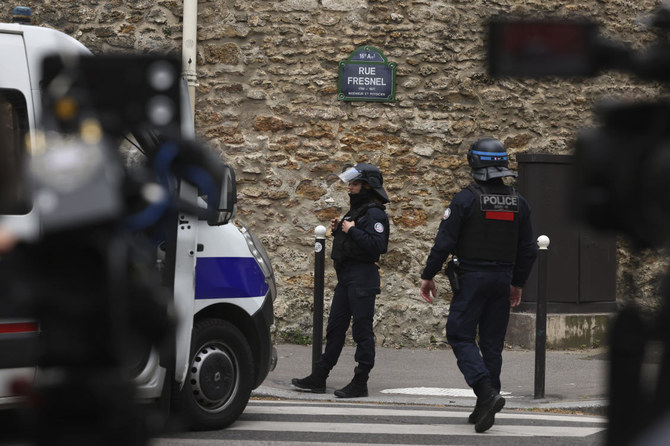
- The court banned him from carrying a weapon or approaching the consulate again
PARIS: A French court this week handed an Iran-born man a suspended 10-month sentence for entering the Iranian consulate in Paris with fake grenades in what he said was “revenge” for a crackdown at home that targeted his family.
The 61-year-old, a long-time resident of France who regularly attends Iranian opposition demonstrations, told the court he acted on Friday after learning the previous day that his sister had been arrested.
He said he had not wanted to “threaten anyone” but rather “take revenge” on the Iranian authorities, who he described as “terrorist.”
The court, in a ruling late on Monday, also banned him from carrying a weapon or approaching the consulate again.
Soldiers and police descended en masse on the neighborhood around the consulate on Friday after the mission reported an intruder entering with a grenade or explosive belt.
But police found no explosives on him or inside after arresting him.
A police source, who did not wish to be named, said the suspect had been wearing a vest with large pockets containing three fake grenades.
The judge said witnesses recounted the man “tearing down flags” and saying he “wanted to die.” Police negotiators managed to convince him to exit the building without his jacket.
A psychiatric expert found the man was of sound mind.
During his trial, the accused embarked on long tirades about the political situation in Iran, prompting the judge to remind him to “stick to the facts.”
The man had already been convicted for setting fire to tires in front of the entrance of the Iranian embassy in Paris in 2023, prosecutors said.
Citizens in the Islamic republic have endured increased repression since nationwide protests began in September 2022.
The demonstrations were sparked by the death in custody of 22-year-old Mahsa Amini, who was arrested for allegedly flouting the mandatory dress rules for women.
Executions — which activists say are a way to instil fear into Iranian society — have also continued apace.
At least 110 people have been executed this year alone, according to the Norway-based Iran Human Rights group.
At least five migrants die in attempt to cross English Channel
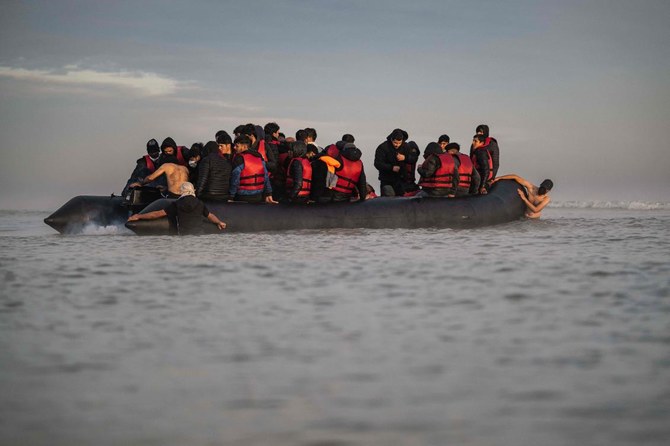
- People smugglers typically overload rickety dinghies, leaving them barely afloat and at risk of being lashed by the waves
PARIS: At least five migrants died in an attempt to cross the English Channel from an area near the French town of Wimereux on Tuesday, police said.
The French coast guard confirmed a police rescue operation had found several “lifeless bodies” following a failed attempt to cross the Channel.
A coast guard spokesperson said its agents were still operating at sea after what the official called a “busy” morning, with several crossing attempts.
The attempts took place after Britain’s upper house of parliament passed legislation on Monday night that will allow the UK government to send asylum-seekers to Rwanda rather than stay in Britain for processing.
Stopping the flow of migrants is a priority for British Prime Minister Rishi Sunak’s government, which says the Rwanda plan will act as a deterrent. Human rights groups and other critics say it is inhumane.
La Voix du Nord newpaper said about 100 migrants had been rescued early on Tuesday, with three helicopters and several rescue boats taking part in the operation.
Tens of thousands of migrants — many fleeing wars and poverty in Africa, the Middle East and Asia — have reached Britain in recent years by crossing the Channel in small boats on risky journeys organized by people-smuggling gangs.
The Channel is one of the world’s busiest shipping lanes and currents are strong, making the crossing on small boats dangerous.
The people smugglers typically overload the boats, leaving them barely afloat and at risk of being lashed by the waves as they try to reach British shores.
Asia hit hardest by climate, weather disasters in 2023— UN
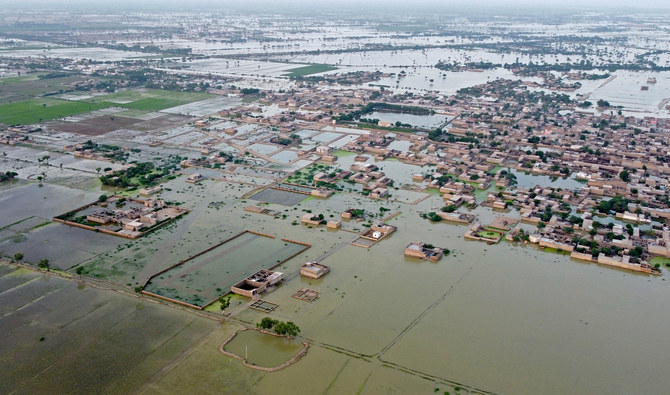
- Climate change exacerbated severity of weather disasters last year, sauys World Meteorological Organization
- 79 disasters, mostly floods and storms, associated with water-related weather hazards were reported in Asia in 2023
Geneva: Asia was the world’s most disaster-hit region from climate and weather hazards in 2023, the United Nations said Tuesday, with floods and storms the chief cause of casualties and economic losses.
Global temperatures hit record highs last year, and the UN’s weather and climate agency said Asia was warming at a particularly rapid pace.
The World Meteorological Organization said the impact of heatwaves in Asia was becoming more severe, with melting glaciers threatening the region’s future water security.
The WMO said Asia was warming faster than the global average, with temperatures last year nearly two degrees Celsius above the 1961 to 1990 average.
“The report’s conclusions are sobering,” WMO chief Celeste Saulo said in a statement.
“Many countries in the region experienced their hottest year on record in 2023, along with a barrage of extreme conditions, from droughts and heatwaves to floods and storms.
“Climate change exacerbated the frequency and severity of such events, profoundly impacting societies, economies, and, most importantly, human lives and the environment that we live in.”
The State of the Climate in Asia 2023 report highlighted the accelerating rate of key climate change indicators such as surface temperature, glacier retreat and sea level rise, saying they would have serious repercussions for societies, economies and ecosystems in the region.
“Asia remained the world’s most disaster-hit region from weather, climate and water-related hazards in 2023,” the WMO said.
The annual mean near-surface temperature over Asia in 2023 was the second highest on record, at 0.91 degrees Celsius above the 1991-2020 average, and 1.87 C above the 1961-1990 average.
Particularly high average temperatures were recorded from western Siberia to central Asia, and from eastern China to Japan, the report said, with Japan having its hottest summer on record.
As for precipitation, it was below normal in the Himalayas and in the Hindu Kush mountain range in Pakistan and Afghanistan.
Meanwhile southwest China suffered from a drought, with below-normal precipitation levels in nearly every month of the year.
The High-Mountain Asia region, centered on the Tibetan Plateau, contains the largest volume of ice outside of the polar regions.
Over the last several decades, most of these glaciers have been retreating, and at an accelerating rate, the WMO said, with 20 out of 22 monitored glaciers in the region showing continued mass loss last year.
The report said 2023 sea-surface temperatures in the northwest Pacific Ocean were the highest on record.
Last year, 79 disasters associated with water-related weather hazards were reported in Asia. Of those, more than 80 percent were floods and storms, with more than 2,000 deaths and nine million people directly affected.
“Floods were the leading cause of death in reported events in 2023 by a substantial margin,” the WMO said, noting the continuing high level of vulnerability of Asia to natural hazard events.
Hong Kong recorded 158.1 millimeters of rainfall in one hour on September 7 — the highest since records began in 1884, as a result of a typhoon.
The WMO said there was an urgent need for national weather services across the region to improve tailored information to officials working on reducing disaster risks.
“It is imperative that our actions and strategies mirror the urgency of these times,” said Saulo.
“Reducing greenhouse gas emissions and adapting to the evolving climate is not merely an option, but a fundamental necessity.”



